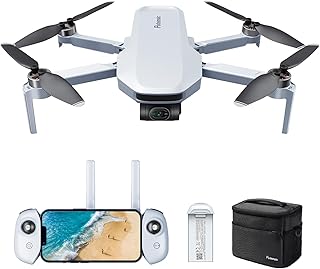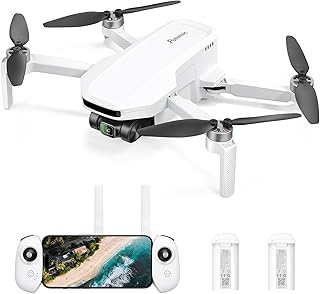Legal Considerations for Flying a Potensic Drone:
Flying a drone, even a recreational one like a Potensic, comes with a lot of legal considerations. Understanding these is crucial to avoid fines, accidents, and legal trouble. Here's a breakdown of key points:
1. Federal Aviation Administration (FAA) Regulations:
* Registration: All drones weighing over 0.55 pounds (250 grams) must be registered with the FAA. This applies to your Potensic drone as well. You'll need to create an FAA account and obtain a registration number.
* Remote Pilot Certificate: If you're operating your drone for commercial purposes, you need to obtain a Remote Pilot Certificate from the FAA. This requires passing a knowledge test and undergoing background checks.
* Flight Restrictions: The FAA has established various restrictions for drone operations, such as:
* No Fly Zones: Many areas are off-limits to drone flights, including airports, national parks, and government facilities. You can find a map of restricted airspace on the FAA's website.
* Height Limits: The FAA generally limits drone flights to 400 feet above ground level.
* Visual Line of Sight (VLOS): You must maintain visual contact with your drone at all times during flight.
* Operating Responsibly: The FAA emphasizes operating your drone safely and responsibly. This includes:
* Avoiding populated areas and sensitive infrastructure.
* Respecting privacy and not flying over private property without permission.
* Staying away from emergency scenes.
* Not flying under the influence of alcohol or drugs.
2. State and Local Laws:
* State and Local Regulations: Several states and cities have their own drone regulations, often more restrictive than FAA rules. These can include noise ordinances, curfew restrictions, and limitations on drone use in specific areas.
* Privacy Concerns: Drones equipped with cameras raise concerns about privacy violations. Several states have laws addressing the use of drones for recording or surveillance. It's essential to research and adhere to local privacy regulations.
3. Liability and Insurance:
* Liability: As a drone operator, you're liable for any damage or injury caused by your drone.
* Insurance: Consider obtaining drone liability insurance to protect yourself from potential financial losses. It covers damages caused by your drone to property or individuals.
4. Tips for Safe and Legal Drone Operation:
* Familiarize yourself with all applicable regulations: The FAA website and local government websites are excellent resources.
* Register your drone and obtain a Remote Pilot Certificate if necessary.
* Check for restricted airspace and no-fly zones before each flight.
* Maintain visual contact with your drone at all times.
* Avoid flying over people, property, or sensitive infrastructure.
* Be aware of surrounding airspace and other aircraft.
* Be respectful of privacy and obtain permission before recording or photographing people.
* Follow all local laws and ordinances regarding drone use.
5. Consequences of Violating Drone Regulations:
* Fines and Penalties: The FAA can impose significant fines for violating drone regulations.
* Legal Action: You could face legal action from individuals or entities affected by your drone's operation.
* Criminal Charges: In severe cases, violating drone regulations could lead to criminal charges.
Resources:
* Federal Aviation Administration (FAA): https://www.faa.gov/uas/
* Drone Pilot Ground School: https://www.dronepilotsgroundschool.com/
* State and Local Government Websites: Search for your state or city's drone regulations.
Remember, flying a drone is a privilege, not a right. Be aware of the laws and regulations, fly responsibly, and enjoy your Potensic drone safely.


